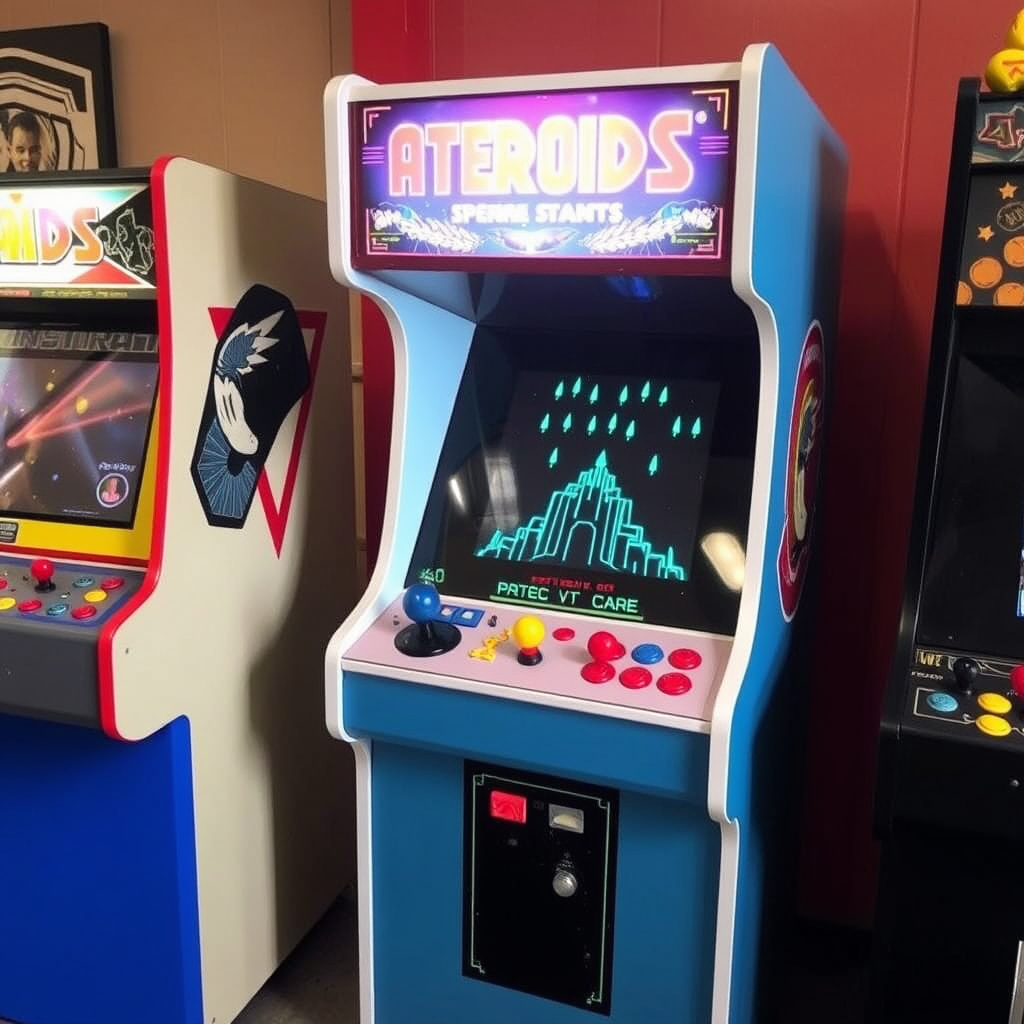
Arcade Game Asteroids: Vector Innovation
Arcade game Asteroids by Atari is a seminal 1979 release that helped define the golden age. Its use of crisp vector graphics, momentum‑based ship movement, and wrap‑around screens set it apart. Rather than relying on flashy colors, it captured players through precision shooting and spatial awareness.
Mastery required anticipating asteroid drift, timing shots between spin and thrust, and controlling ship inertia. That pure gameplay loop has kept Asteroids alive in collections and retro arcades for over four decades.
Auctions: Preserving and Redistributing Cabinets
An arcade game auction serves as both a marketplace and a preservation hub. Collectors, operators, and hobbyists gather to bid on vintage machines, sometimes rescuing rare titles from obscurity. Auctions are where you find pristine Asteroids cabinets with original vector monitors alongside multi‑game restorations.
They also set the pricing trends for retro machines, influencing how accessible certain titles remain for public or private enjoyment.
Arcade Birthday Parties: Gateway to the Hobby
In the context of arcade game birthday parties, classic games like Asteroids shine because they offer quick onboarding. Party guests—often mixed in age and gaming experience—can understand the rules instantly, which keeps the flow of play smooth.
For arcade operators, birthday packages are a steady revenue stream that also exposes younger players to classic cabinets. Someone’s first taste of arcade nostalgia may well come from a birthday party, planting the seeds for a lifelong interest.
Build AI Games on Jabali
- No-code creation: Turn a simple prompt into a playable game in minutes, no coding or art background needed.
- Genre jumpstart: Launch fast with templates for maze shooters, dungeon crawlers, character sims, interactive stories and much more.
- Tweak everything: Upload assets, music, change character personalities and much more.
- Instant playtesting: One click to test, iterate, and balance! What you change is what you play.
- One-link sharing: Share a web link that works on desktop and mobile—no installs, just play.
- Creator-first: Great for solo devs, writers, educators, and studios prototyping new ideas quickly.
FAQs
Q: Why does Asteroids remain popular?
A: Its precise controls, vector visuals, and timeless gameplay loop.
Q: What’s the role of auctions in arcade culture?
A: They redistribute, preserve, and often restore vintage machines.
Q: Why are birthday parties important for arcades?
A: They introduce new audiences to classic games in a fun, social environment.